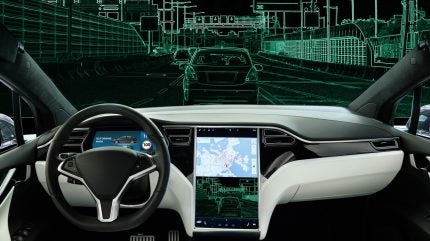
WeRide has been approved to carry out late-night testing of its robotaxi within the Beijing High-Level Autonomous Driving Demonstration Zone.
This development allows testing from 10 pm to 7 am, a step towards establishing a round-the-clock autonomous ride-hailing network in the Chinese city.

Discover B2B Marketing That Performs
Combine business intelligence and editorial excellence to reach engaged professionals across 36 leading media platforms.
This initiative is aimed at providing all-weather, all-day autonomous mobility services.
To overcome night-time visibility challenges, the company’s robotaxi is said to feature an array of over 20 sensors, along with advanced cameras and light detection and ranging (LiDARs).
These sensors are integrated with a multi-sensor fusion algorithm and a computing platform, ensuring 360-degree coverage without blind spots and a detection range of up to 200m.
WeRide noted that it employs automotive-grade sensors and assembly processes, alongside a smart sensor cleaning system.
This system automatically detects and cleans dirt and moisture, maintaining sensor clarity in all environmental conditions.
In May 2025, WeRide introduced China’s first 24/7 autonomous ride-hailing network in Guangzhou city, acquiring full-day operational experience across various scenarios.
The commencement of 24/7 robotaxi testing in Beijing is a critical step in validating WeRide’s technology and safety systems. It also aims to bridge the service gap in public transportation during off-peak hours, improving vehicle availability in the early mornings and late nights, especially in less accessible areas.
Looking forward, the company plans to further develop its full-stack autonomous driving technology as well as safety systems to expand its ride-hailing services.
For the second quarter (Q2) of 2025, WeRide reported 836.7% YoY surge in robotaxi revenue to $6.4m, constituting 36.1% of the total revenue and marking a record high since the company’s inception in 2021.
Last month, the company received the first autonomous driving permit in Saudi Arabia, enabling the launch of a robotaxi service nationwide.
Additionally, the company unveiled its latest high-performance computing platform, HPC 3.0, co-developed with Lenovo.
In April 2025, WeRide collaborated with Uber and Dubai’s Road and Transport Authority to promote autonomous vehicle mobility in Dubai.






